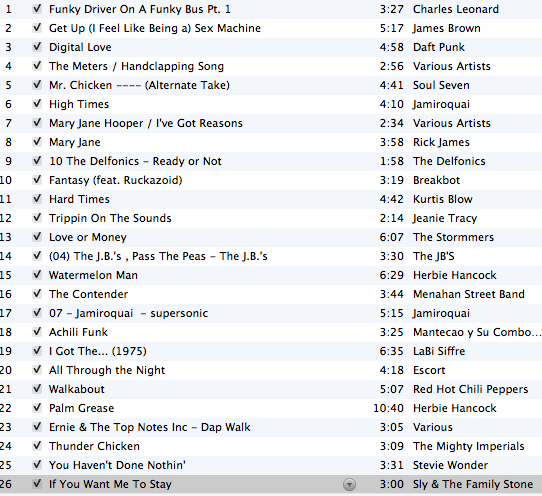In our search for more immersive escapism, people are venturing into scary worlds, like that of the human-to-operating system romance in this year’s Oscar-nominated movie “Her.” But I’d argue that ordinary, innocuous modes of escapism are dangerous enough and closer to having real effects on us than any futuristic technology.
It’s no secret we all use music to support, regulate and even generate our moods.
We’ve all stared out the car window like Christina Ricci in the opening scene of “Casper,” pretending inwardly to be a sad movie character while a slow, morose song blasts from radio speakers or headphones.
We’ve all done that. I don’t mean to embarrass anyone, but we know.
I’ve found this harder to do as an adult driver who has to concentrate on the road, but there’s a myriad of situations that work just as well. It can rain anywhere and probably will if sadness demands it, but who needs a fortuitous forecast when we can will any setting into being with our headphones?
Our lives can seem drastically different, clearly plotted, more special or dramatic than we could dream. All we need is a little mood music.
If we’re using the radio for this purpose, an unexpected and tonally incompatible song could intrude on our fantasy. So we retreat into playlists, the soundtracks we engineer for our startlingly non-cinematic lives.
Our playlists become security blankets, guarding us from the fact that real life is often unsatisfying and rarely works like the movies. We can’t leave our headphones at home, and we certainly can’t have a party without being overly concerned about what tone the music is setting, something that never falls flat in fictitious shindigs.
Music itself is not the problem. It’s how we use it. We treat music as an antidote to the reality of often unsatisfying, dull and chaotic lives
Of course, there are situations that need mood-changing. Go ahead, blast your warm and fuzzy Christmas playlist because you will otherwise jump down your aunt’s throat for mentioning her enemas at the table. A bad break-up could easily compel you to Alanis-Morrisette-out against your better judgement. Exercise is near impossible some days without pretending you’re Beyoncé strutting down the street instead of on the treadmill.
From the day of the eight track to that of 8tracks.com, the saving grace of specialized mixes are in their distinct social aspects. It’s in the way it’s not strictly an experience the original playlist-compiler immerses him or herself into: it’s shared on some level. But this gesture is shallow; it spurs a connection but doesn’t embody one.
There’s something wonderful about not imposing a soundtrack on life. Qualities like messiness and dullness have a place: they make those moments that feel cinematic stand out. If we attempt to make our whole lives fit into a plot, with rising action and climax, then we lose what the movies are trying to represent in the first place.
Playlists are an indulgence I couldn’t live without, but it should be just that — an indulgence.
Samantha Bares is a 20-year-old English junior from Erath, La.





